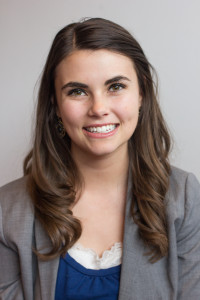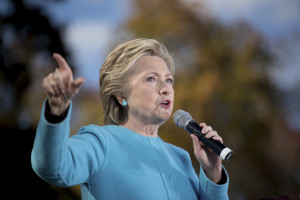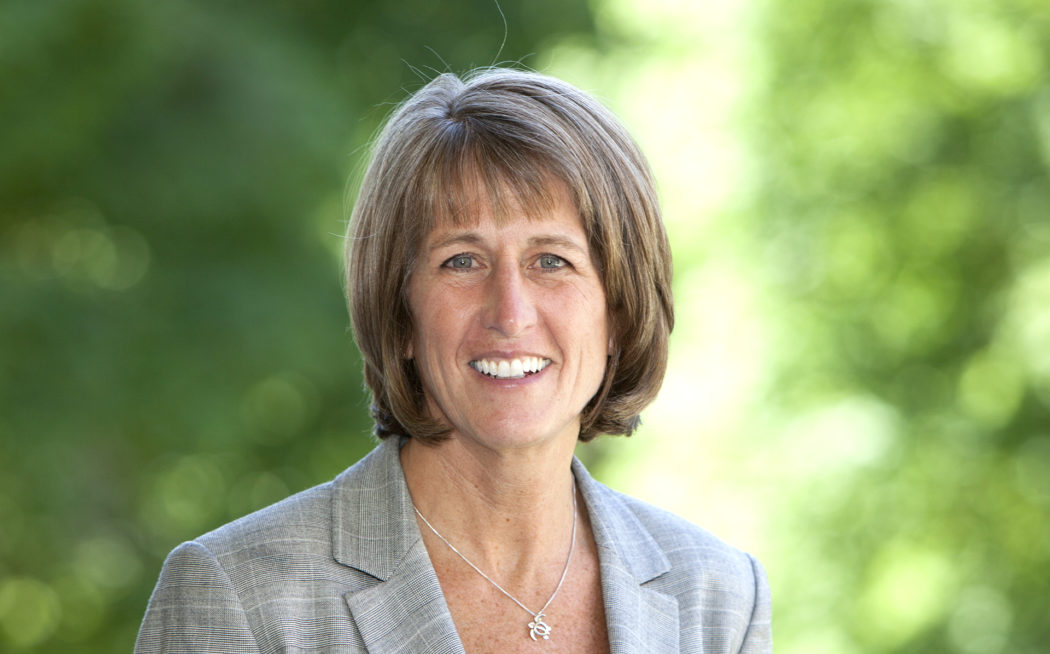A year for women in politics: USU makes history
The 2015-2016 academic year marked history for Utah State University.
For the first time in its 128-year history, the Utah State University Student Association president and the president of the university are both women.
In October, Executive Vice President and Provost Noelle Cockett was named USU’s first female president.
In addition to being the first female president of the university, Cockett was the first woman to serve in several other leadership positions at USU, including dean of the College of Agricultural and Applied Sciences, vice president for extension and dean of the School of Graduate Studies.
When President Stan Albrecht announced his retirement in February, the Board of Regents began a search for someone to fill his shoes.
Cockett said many people encouraged her to apply for the position, but she doubted her abilities at first.
“It took right up until the application time for me to think if I were selected that I could do it,” Cockett said.
While Cockett paved history as a woman, she never felt gender disadvantaged.
“At no point have I ever been told I can’t do something [because I’m a woman]; that’s just never happened,” Cockett said.
Growing up, Cockett attended a Catholic school, which taught her being a woman should never prevent her from doing something.
Cockett said she had nuns as teachers and they would never let her use being a woman as an excuse or a disadvantage.
“It was more like, ‘You can do this, so why aren’t you?’” Cockett said.
Cockett said she recognizes differences between men and women, which is why she thinks it’s important for women to be involved in leadership roles.
“I grew up on a farm and I learned to accept what I can and can’t do,” she said. “I couldn’t lift the same things my brothers could, but I could drive a tractor straighter than they could.”
Cockett noted another talent she feels will help her in her presidential role.
When she is in a meeting or around a group of people, she has learned to observe the group and if she thinks someone “is listening and mentally engaging, but is too afraid to share their opinion,” she will ask for their input, to give them an opportunity to voice it.
Cockett said she hopes to see people reach their full potential and grasp new opportunities.
“I want to see people who I think have the ability, but maybe aren’t carrying out that ability,” she said. “I will be reaching out and creating more, smaller opportunities.”
Ashley Waddoups, the president of USUSA and a senior studying English education, said she has a similar ability, noting that people who are normally less likely to open up will open up to her.

“I think I have a warmth that people feel when they’re around me and I love that. I love being able to have those intimate relationships with people,” Waddoups said.
However, Waddoups also said she faced gender-based disadvantages when she ran for president.
“When I ran, I got some comments I was surprised by,” she said. “I had people tell me I smile too much and others wouldn’t want to vote for me… I even had a fellow USU student say, ‘No one is going to want to elect a female president.’”
Waddoups mentioned gender-based difficulties she has faced in her presidential term.
“I feel like I’m constantly being told I was too weak or too soft, but people are taken back if I’m strong.”
Waddoups said her leadership style differs from that of previous leaders.
“I have more of a soft style. I’m not tough or stoic like past presidents,” Waddoups said.
When she conducts meetings, Waddoups said people sometimes behave differently than they might if a male were conducting the meeting.
“Sometimes people are a little more talkative at first,” Waddoups said. “I’m not personally offended by that, but other people could look at it and say I’m a weak leader.”
Although women have faced a multitude of struggles and disadvantages along the way, they are now “at a unique point in history,” Waddoups said.
Although Hillary Clinton did not win the United States presidential election, she came closer than any woman in U.S. history.
In her concession speech, Clinton mentioned the “glass ceiling” barrier for women to break through.
“Although we were not able to shatter that highest and hardest glass ceiling this time, thanks to you it has 18 million cracks in it, and the light is shining through like never before, filling us all with the hope and the sure knowledge that the path will be a little easier next time, and we are going to keep working to make it so,” she said. “We still have so much to do together. We made history, and let’s make some more.”
Clinton also encouraged “all the little girls” in the audience to “never doubt that you are valuable and powerful and deserving of every chance and opportunity to pursue and achieve your own dreams.”

Democratic presidential candidate Hillary Clinton speaks at a rally at St. Anselm College in Manchester, N.H., Monday, Oct. 24, 2016. (AP Photo/Andrew Harnik)
Stephanie Bagnell, the program coordinator for USU’s Center for Women and Gender said she thinks women have made progress, but still have a ways to go.
“We have experienced a huge progress of leaps and bounds from where we were to where we are now, but we still have that glass ceiling to break through,” Bagnell said.
Waddoups also said she hopes to set a precedent for other women to take on leadership roles, and she thinks “it’s exciting to see a woman who has the courage to break through that glass ceiling and try and run something.”
@alison_berg

